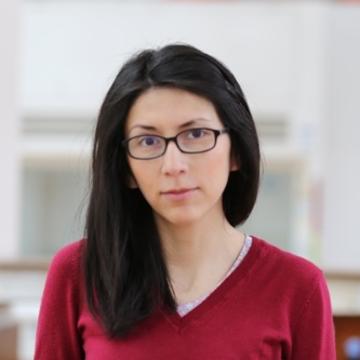Karina Calvopina

Dr Karina Calvopina
Postdoctoral Researcher
Group: Chris Schofield
Researchgate
Biography
I was born in Quito, the capital of Ecuador, where a passion for biology was instilled into me at an early age by listening to the stories of my father and his brothers. Although I considered studying medicine like them, I wanted to get a more detailed perspective of how disease occurs. At that time, engineering in biotechnology was probably the only career in Ecuador to offer that kind of approach. I studied a broad range of courses including algebra, physics, chemistry, biology, etc., but it was only when I became an intern that I saw biotechnology in action. Actually, it was the role of bacteria in plant science, the food industry (Nestle) and human health (diagnosis laboratory) that caught my attention. After finishing a 5-year undergraduate program in Ecuador at the Army Polytechnic School, I applied to a fully funded project to complete my undergraduate thesis and obtain my bachelor’s degree. My project aimed to unravel the mechanisms of antimicrobial resistance in clinical isolates from a tertiary level hospital. Not long after that, I started to work in the Molecular Diagnosis Laboratory in the same hospital, and in parallel I was working on a project at my former university. It was a really exciting moment, because I was combining and learning molecular biology techniques to find an explanation for illness and suggesting ways to cure it. I knew it was only the beginning, because I wanted to learn more. In Ecuador, my supervisors always encouraged their students to pursue higher goals and they supported my application to study for a PhD. After obtaining a scholarship, I applied to the Cellular and Molecular Medicine Program in Bristol to study mechanisms of antimicrobial resistance. My PhD project fitted between the existing collaboration between the universities of Bristol and Oxford. My interest in contributing to combat antimicrobial resistance by studying it from a biochemical perspective, and knowing that Oxford has the facilities and expertise in this area, brought me here; also hoping that my previous background adds to the outcome of the project I am currently working on.
To this point in my professional life, I think I have been influenced by so many people. I have learnt from professors, technicians, undergraduates, PhD and Master’s students, and postdocs. The beauty of working in science is that you never stop learning. In the process you find people with different perspectives, scientific and cultural backgrounds that make the learning process a more fulfilling experience.
Current research
At the moment we are working on a medicinal chemistry project. It is a challenging and interesting project that combines many disciplines for one outcome. We are searching for a compound to protect the activity of current antibiotics, which are being affected by the bacterial mechanisms of resistance. One of the most common mechanisms of resistance is the presence of bacterial enzymes that destroy antibiotics, in particular a class of antibiotics called β-lactams. Currently, there is no enzymatic inhibitor against a specific class of bacterial enzymes called metallo-β-lactamases, and morbidity and mortality increases due to bacteria carrying these enzymes. We aim to generate a novel inhibitor with the appropriate characteristics to make it suitable for clinical trials and ultimately rescue our current antibiotics. The participation of renowned groups with expertise in different fields, including chemistry, microbiology, crystallography, biochemistry, and pharmacology, allows the exchange of expertise and proper evaluation of the synthesized compounds at every stage.
My contribution to this ENABLE (European Gram-negative Antibacterial Engine) project is to provide information about the inhibitory activity and how the compounds fit in the enzymes so chemists can propose other chemical modifications to improve the activity of the initial scaffold. I have been really fortunate to find something that I love to do and to be part of a good team of experts, which has allowed me to set short, mid and long-term goals that are relevant for the project and my personal development as a scientist. I would love to keep working on medicinal chemistry because I am finally finding more answers than questions on how to contribute to improve people’s health, and although there is still a lot to do, I would love to keep being part of it.
Other interests
I am really passionate about how people express their thoughts and feelings. For that reason, I love learning about culture, including: other languages, different cuisines, painting and dancing. Oxford is such a beautiful place to experience them all. It has been so easy to find inspiration in every corner of the city and put everything on a canvas. Likewise, due to the international environment of the city it has been easy to find nice people and learn from other cultures and try new recipes. Fortunately, I managed to find people interested in doing Cuban salsa which was something I really missed from my Latin‑American background.




